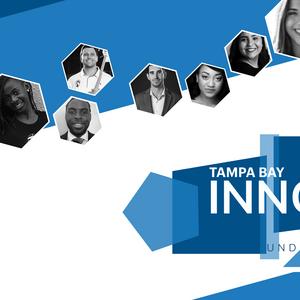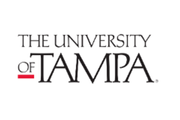![ZH4A9120[1]](https://media.bizj.us/view/img/12630022/zh4a91201*540xx2880-1623-0-208.jpg)
The fourth annual Glaring Gap Summit in Tampa started on Thursday and saw an audience of 50 Florida-based women ready to learn from presenters.
The annual summit started in 2019 after Embarc Collective published a research report revealing the drastic difference in funding for female founders compared to male founders. It’s a two-day event of networking, presentations and curriculum focused on sharing insight into executing startup investments to bridge this gap.
Several presenters shared about their career paths and gave advice on how founders and funders can improve the investing ecosystem for all.
We’ve rounded up some key takeaways below.
Allison Baum Gates’ key points: Gates, a general partner at venture capital firm SemperVirens and an author, spoke about her diverse career and how she’s learned to invest better. She talked about the ups and downs of her journey and her routine for success in a demanding industry.
On success and building an ecosystem for yourself:
- “Don’t look for role models; look for collaborators,” Gates said, discussing the importance of a network and relationships. Relationships don’t just have to be about “nice conversation,” she said. Bring each other deal flow.
- The current system in venture capital is not set up for outsiders, Gates said. It’s hard to break in, and the system is historically dominated by a set group of white men. “We have to actually lean out of that system and create our own, one that is designed for outsiders, or people with diverse backgrounds and different types of perspectives.”
On changing your approach and continuously learning:
- “You’re going to look for something where the light is shining. And if you’re shining the light in the wrong place, you’re never going to find what you’re looking for,” she said, discussing how she had to broaden her search to capture better investments and deals.
- “Money is not a scarce commodity, as scarce as it might feel sometimes. Time is the most scarce commodity. It can’t be replaced. It can’t be replicated. And so I wanted to figure out where I should be investing my time, and then what kind of output am I actually getting from that,” she said.
Angela Lee’s key points: Lee is a professor at Columbia University’s business school and founder of angel investor network 37 Angels. The network has invested in 60 startups and educates new investors through a startup boot camp seeking to bridge the funding gender-inequality gap.
On what 37 Angels looks for to invest:
As a portion of Lee’s more than three-hour educational seminar on investing, she explained the four points each founder has to prove to move forward during investment conversations. Those four Ps are the following:
- People: Is the team complementary? Does a co-founder have the “it” factor, meaning are they charismatic enough to sell? And do the founders have domain expertise in the company they are trying to build?
- Problem: What sort of large problem is the company seeking to solve and how? Do they understand their direct and indirect competition? And do they deeply understand their customers?
- Progress: Will the company be able to repeat the way it develops or makes money? Do they understand and are able to replicate growth, whether from bootstrapping or venture capital fundraising?
- Price: Are the metrics understood, and is the valuation ask fair?
“[Artificial intelligence] has become like the word Smurf. It doesn’t mean anything anymore,” she said, sharing a story about a company with an “AI-powered” in their name, but its founders had no domain expertise in the science.
Other takeaways
On empathy and the investor’s “casino”:
Investors are dropping off a few chips at a handful of games in the casino, but founders are betting all their chips at the poker table, Ellie Bahrmasel, an investor with Chicago-based venture capital firm Further Faster, said on the investor-founder dynamic.
“For the founder to have some empathy and realize the investor is coming to the table with some insight and probing questions that comes from having the breadth of experience, the breadth of insight from what’s happening not just in that specific company’s world, but in the market more broadly,” Bahrmasel said. “And conversely, as an investor, you have to have empathy for the founder in recognizing they are so immersed.”
On finding momentum and taking action while balancing company vision:
“That is the necessary tension. You are always going to have to straddle the line between the future vision that you can see and what’s the most important thing you can do in the day-to-day to materialize it,” Bahrmasel said.
On founders being wrong:
“From the founder’s perspective, coming back to learning, coming back to reasoning and being able to communicate that from the investor perspective, understanding this is a long and winding road where being wrong and changing your mind or changing direction is a really important part” of being a founder, said Emily Achler, co-founder and CEO of reading platform Italic Type.
The summit will continue with a pitch event and a panel moderated by ReliaQuest’s Kim Hill with author and journalist Julia Boorstin.




